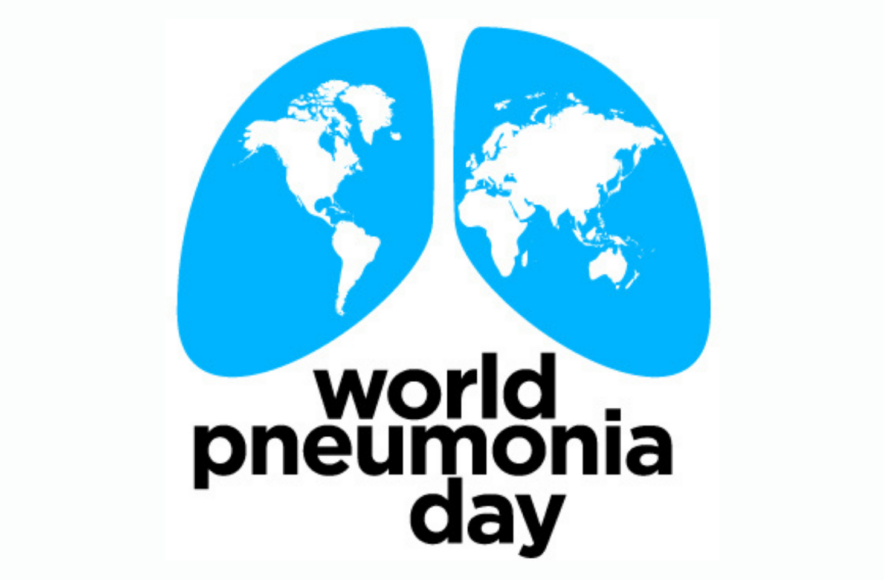What is Pneumonia?

Pneumonia is serious inflammation of one or both of the lungs.
It is usually caused by an infection – most commonly bacterial but people can also get viral pneumonia as a result of a virus like Covid-19 and flu.
Pneumonia causes the alveoli (air sacs) in the lungs to fill with fluid or pus, making it harder for them to work properly.
The body sends white blood cells to fight the infection. Whilst this might help to kill the germs, it also makes it harder for the lungs to pass oxygen into the blood.
Other types include aspiration pneumonia – caused by bacteria getting into the lungs from food, fluid or saliva – and fungal pneumonia, which is rare in the UK and most likely to affect people with a weakened immune system.
Who is more at risk of pneumonia?
People we support are at a higher risk of pneumonia and aspiration pneumonia for a number of reasons.
It may be that someone has difficulty swallowing (dysphagia) or they are less mobile, or they may have another underlying health condition such as low weight, constipation or epilepsy.
Respiratory problems are the most frequent cause of death in people with learning disabilities.
Of the deaths reviewed by the LeDeR programme, bacterial pneumonia was stated as a cause of death for 24% of adults in 2019/20, with aspiration pneumonia cited in a further 17% of adults (LeDeR 2020)
Symptoms of Pneumonia – what to look out for
- A cough – may be dry, or produce thick yellow, green, brown or blood stained mucus (phlegm)
- Difficulty breathing – breathing may be rapid and shallow even when resting
- Rapid heart rate
- High temperature
- Shivering
- Sweating
- Loss of appetite
- Lethargy
- Chest pain
- Feeling generally unwell
Some of the less common symptoms of pneumonia that we should still be aware of are:
- Coughing up blood
- Headaches
- Fatigue
- Feeling or being sick
- Joint and muscle pain
- Feeling confused or disorientated
How is it treated?
You should always seek medical help and advice if you suspect someone has pneumonia. The usual course of treatment for pneumonia is a course of antibiotics as well as rest and lots of water.
Some people with mild pneumonia may be able to recover at home with treatment from their GP. However severe pneumonia is deadly and must be treated quickly in hospital. Antibiotics should be started within four hours of admission through a drip in your arm.
Many people recover from pneumonia. It’s really important to always finish the course of antibiotics, even if you start to feel better.
How can we prevent pneumonia?
As with many health conditions, there are ways we can prevent pneumonia.
It’s important that everyone has good hydration (water intake) and a healthy diet, as well as practicing good oral hygiene and taking part in regular physical activity.
If someone has existing health conditions such as dysphagia, acid reflux, epilepsy, diabetes or asthma, we should also make sure these are managed well.
Vaccinations are another important preventative measure and the Coronavirus vaccine and the annual flu vaccination are important measures people can take to help prevent pneumonia. There is also the pneumococcal vaccine (PPV) which is given to those who are deemed to be at higher risk of developing serious infections.
These include:
- babies
- people aged 65 and over
- anyone at occupational risk, such as welders
- anyone from the ages of 2 to 64 with a health condition that increases their risk of pneumococcal infection
This last group usually includes the same people who are offered an annual flu vaccine.
You will be advised to get a pneumococcal vaccine if you currently have or have had any of the following medical procedures or conditions:
- had your spleen removed, your spleen does not work properly, or you’re at risk of your spleen not working properly in future (for example, if you have coeliac disease)
- a long-term respiratory disease, such as chronic obstructive pulmonary disease (COPD)
- heart disease, such as congenital heart disease
- chronic kidney disease
- chronic liver disease, such as liver cirrhosis
- diabetes
- a suppressed immune system caused by a health condition, such as HIV
- a suppressed immune system caused by medicines, such as chemotherapy or steroid tablets
- a cochlear implant (a hearing device) – Action on Hearing Loss has more information about cochlear implants
- had a leak of cerebrospinal fluid (the clear fluid that surrounds the brain and spine) – this could be the result of an accident or surgery
If you have any concerns about changes in someone’s health, you should always seek advice from a medical professional such as your GP.
Friday 12 November is World Pneumonia Day.
For more information about pneumonia, please visit the British Lung Foundation website: https://www.blf.org.uk/support-for-you/pneumonia/what-is-pneumonia
- Alison Worsfold is Head of Healthcare at United Response.